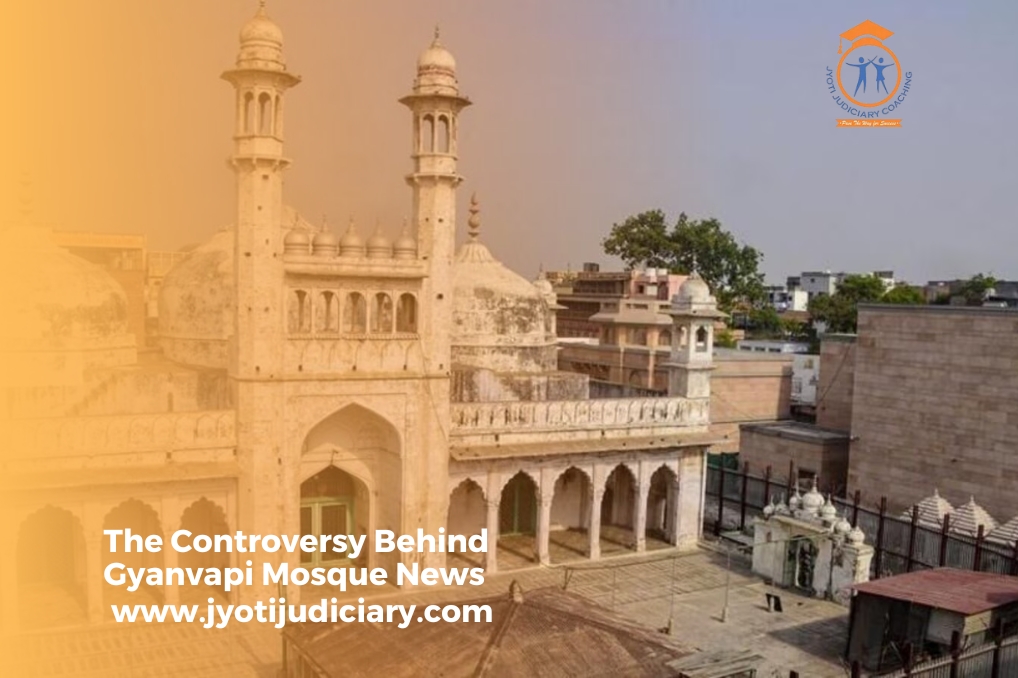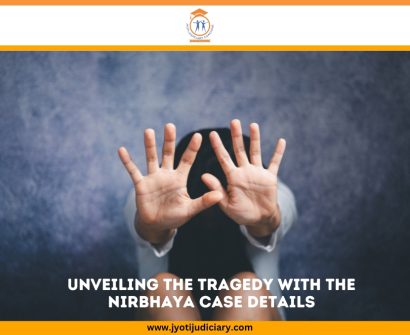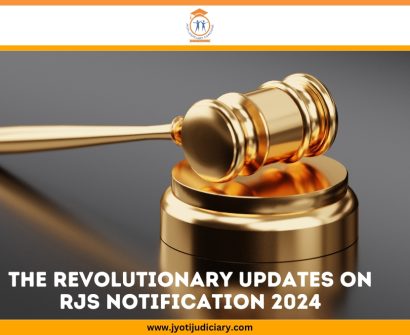
Located in the ancient city of Varanasi, along the sacred Ganges River, the Gyanvapi Mosque possesses great historical and religious significance. This mosque has become the subject of an extended dispute involving religious beliefs, archaeological finds, and legal battles as it is situated next to the sacred Kashi Vishwanath Temple. Serious issues about chronological difficulty, religious harmony, and the preservation of heritage are brought up by the current discussion.
Varanasi’s streets and riverboats were adorned with saffron flags featuring images of Ram. The aroma of burning camphor and the melody of Indian classical music wafted through the air outside the renowned and ancient Kashi Vishwanath temple in Varanasi, where throngs of pilgrims gathered to offer their prayers.
However, the carnival-like mood was replaced next door, to the west of the temple, by a somber and austere ambiance where multitudes were greeted by police officers and barricades. The officers were watching over the Gyanvapi Mosque, which is thought to have been constructed on the remains of a Kashi Vishwanath temple from the 16th century that Aurangzeb, the Mughal emperor, destroyed in 1669.
Case of Gyanvapi Mosque: Background
- About the Gyanvapi case, debates have revolved around the Gyanvapi Mosque after the Ayodhya verdict; some people think it was constructed on top of the remnants of the Kashi Vishwanath temple.
- Several legal cases have addressed various aspects of this controversy, including those filed in the Supreme Court, Allahabad High Court, and Varanasi District Court.
- A group of priests in Varanasi petitioned the court in 1991, one year before the Babri Masjid was demolished, to be allowed to pray on the grounds of the Gyanvapi mosque.
- Thirty years later, in 2021, the Allahabad High Court suspended a contentious archaeological study of the site to ascertain if a Hindu temple was partially demolished to build the 17th-century mosque, so halting proceedings in the Kashi Vishwanath Mandir-Gyanvapi Masjid lawsuit in a Varanasi court.
- Five Hindu ladies tried to enter the courtroom last year to worship the Shringar Gauri and other idols inside the Gyanvapi mosque complex, which sparked the present dispute.
Gyanvapi Mosque News: Survey
- Five women filed a new petition asking to be allowed to worship Hindu deities whose idols are on the outside wall of the Gyanvapi mosque regularly. The court also established a commission to survey and film the Gyanvapi-Gauri Shringar complex’s basements.
- The mosque committee objected, claiming the court-appointed advocate commissioner lacked authority to video inside the property, causing the survey to be put on hold.
- With strict security measures in place, the committee finished surveying and filming both of the Gyanvapi-Gauri Shringar complex’s basements on May 14.
Court on Gyanvapi Mosque
- The court intervened in the case in several ways, including challenges to various orders, stays, and extensions.
- The Varanasi court proceedings were halted by the Allahabad High Court in 2021, with a focus on the Places of Worship Act, 1991, which prohibits modifications to a place of worship’s religious character beyond August 15, 1947.
- As per the Gyanvapi case result, the Hindu devotees are now permitted to pray within the Gyanvapi mosque’s “Vyas Ka Tekhana,” a closed space, due to the Varanasi court ruling. The district administration has been asked by the court to make the required arrangements.
Gyanvapi Case Status
- Regarding the current status of Gyanvapi masjid, the Supreme Court temporarily withheld the Varanasi court’s previous demand for a “scientific investigation” by the ASI, involving excavation and ground-penetrating radar studies.
- The survey was started by the ASI in August 2023, and multiple extensions were given for the completion of the report.
- The Gyanvapi Masjid issue is still a complex legal dispute with significant religious and historical ramifications.
- In settling this protracted case, the Varanasi court’s recent decision to release the ASI report represents a major step toward transparency.
Timeline of the Case of Gyanvapi
- May 16, 2022: A commission appointed by the local court completes a video evaluation of the Gyanvapi mosque and Kashi Vishwanath temple. A structure that the Muslim side claimed was a “fountain” and the Hindu side said was a “shivling” was discovered inside the mosque premises during the inspection process.
- July 21, 2023: To ascertain whether the Gyanvapi mosque complex was built atop an earlier Hindu temple construction, the Varanasi district court ordered a scientific investigation of the area. This time, the Archaeological Survey of India (ASI) was permitted by District and Sessions Judge A K Vishvesha to carry out a scientific investigation, survey, and excavation at the disputed land.
- August 4, 2023: The Supreme Court and the Allahabad High Court approved the ASI’s survey amid strict security measures, rejecting arguments jointly submitted by the UP Sunni Central Waqf Board and the Anjuman Intezamia Masajid Committee for the Gyanvapi mosque. Since then, the campus has been surveyed by the ASI teams.
- December 11, 2023: The ASI was given an extension by the Varanasi district court to submit the results of the scientific survey of the Gyanvapi mosque premises, which was mandated by the court.
- January 25, 2024: The Muslim and Hindu factions get the ASI report.
Gyanvapi Case FAQs
What is the final decision of the Gyanvapi case?
The Varanasi district court’s ruling permitting the Hindu side to pray in Gyanvapi’s Vyas Tehkhana was affirmed by the Allahabad High Court. The Anjuman Intezamia Masajid Committee’s appeal of the district court’s ruling was denied by the high court.
Are Muslims allowed in the Kashi Vishwanath temple?
You are not permitted to visit either of the two temples as you are not a Hindu. Additionally, there is stringent military surveillance; at times, it resembles a military barrack rather than a sacred site.
Is Gyanvapi a temple or mosque?
The historic Kashi Vishwanath Temple in Varanasi is near the Gyanvapi Mosque. Hindus assert that the mosque was constructed over a temple. Certain Hindu factions maintain that Muslims ought to relinquish authority over the temples in Mathura and Gyanvapi, as these sites hold great spiritual significance for Hindus.
What is the judgment on Gyanvapi mosque?
The Allahabad High Court today denied all of the mosque committee’s petitions contesting civil proceedings that call for the restoration of a temple at the mosque site, in a significant ruling in the Gyanvapi case.
Is namaz allowed in Gyanvapi mosque?
Even after a Varanasi court granted permission for the Hindu party to perform Pooja in the mosque’s southern basement, the Namaz in the Gyanvapi mosque continues as usual.
Has puja started in Gyanvapi mosque?
On Wednesday night in Varanasi, a puja was held in the ‘Vyas Tehkana,’ or the southern dungeon of the Gyanvapi building. This was a few hours after a court permitted the revival of a ritual that was supposed to have been stopped thirty years earlier.
What is happening in Gyanvapi mosque?
In order to determine if the Gyanvapi mosque complex was “constructed over a pre-existing structure of a Hindu temple,” the Varanasi district court ordered a scientific examination of the area.
Why is the Gyanvapi mosque important?
The Gyanvapi Mosque in Varanasi, India, has a convoluted and complicated past that is steeped in conflicts and debates surrounding religion. The original Kashi Vishwanath Temple is believed to have stood where the mosque now stands, having been built in the 17th century during the reign of Mughal Emperor Aurangzeb.
What are the Hindu symbols in Gyanvapi?
On the initial day of the ASI-conducted videography survey within Gyanvapi mosque, the officials took pictures of Hindu symbols, such as Trishul and Swastika, which were etched on the walls of the mosque compound.
With the goal of giving students the best education available for law entrance exams including the CLAT, AILET, and numerous state judiciary exams, Jyoti Judiciary Coaching, India’s Finest educational Platform, was established. Come enroll now with Jyoti Judiciary!
For any latest news, legal topics, judiciary exams notifications, patterns, etc watch Jyoti Judiciary’s YouTube channel for legal videos for any updates at https://youtube.com/@jyotijudiciarycoaching4852?si=2cwubh9d2A9urwJf










